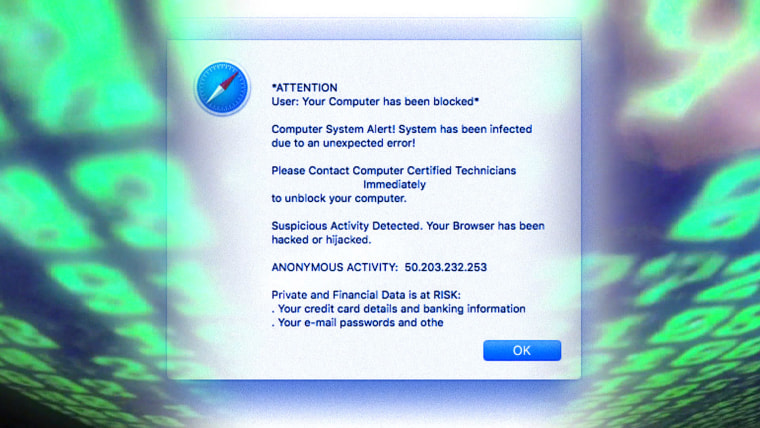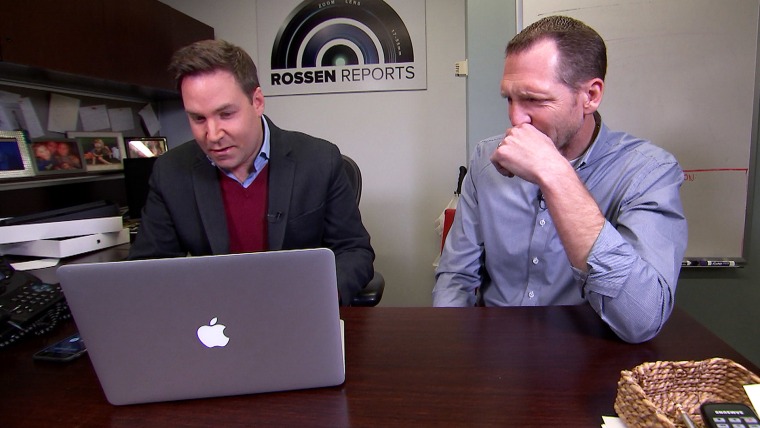You're surfing the Web and, out of nowhere, a scary warning pops up saying your system has been infected and your private and financial data are at risk... and the only way to fix it is to call the number on the screen.
It looks legit, like it came from your own computer, but actually it's a fake. And it looks so real that even TODAY's Natalie Morales became a victim: She panicked and called the number.
"They told me that they're a reputable company, that they work with Apple and with Microsoft," Natalie told TODAY national investigative correspondent Jeff Rossen. "So they immediately asked for access to my computer."
"Please tell me you did not do that," Rossen said.
"I know I shouldn't have done that," Natalie admitted. "I did it, Jeff."

Once the people she'd called were inside Natalie's computer, they told her she had a virus but, for $400, they'd fix it. "I knew at that point, what they were offering wasn't true," Natalie said.
Security experts say these pop-up ads are misleading and dangerous. "It looks like a warning, but it's not real," computer security expert Jim Stickley said. "It's just a picture telling you that there's something wrong with your computer, but there's not actually something wrong with your computer."
To demonstrate, the Rossen Reports team bought a brand-new MacBook Air laptop. "If they tell us over the phone there's a virus on this, what does that mean?" Rossen asked Stickley.
"It means they're trying to rip us off," Stickley said. "Or even worse, they might be trying to put their own malware on."

Rossen dialed the number and said: "I saw a pop-up that said to call this number about a computer virus, can you help me?"
The technician immediately asked to tap into the computer. Within seconds, he had bad news: "Yes, there is a virus and maybe someone else is trying to access your computer."
"What does this cost me to get fixed?" Rossen asked.
"If you go for the one-year contract, it will cost you $199.90"
At this point Rossen identified himself as an NBC investigative correspondent and said the computer was brand-new. The technician denied he was trying to sell anything and promised, "I'll show you the virus." But after several minutes he was unable to show any virus and started surfing the Web before Rossen asked him to relinquish the remote connection.
Apple and Microsoft both told NBC that they are not affiliated with the companies that create the pop-up ads. The best advice if you get one: Press the Escape key or quit your browser.
"I've learned a good lesson," Natalie Morales said. "Next time my gut says, 'What would Jeff Rossen do?' Run."
To suggest a topic for an upcoming investigation, visit the Rossen Reports Facebook page.